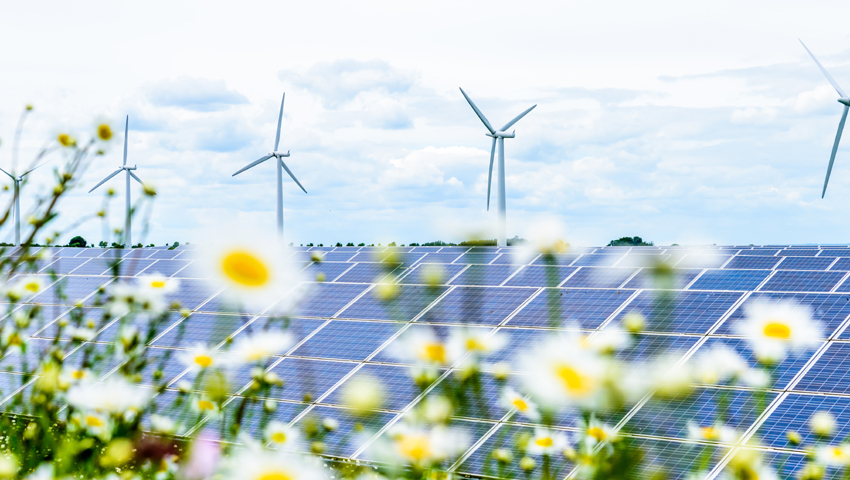Nature and climate groups have published a joint statement and policy paper, calling on political parties to reform the planning system to prioritise renewable energy and nature-restoration.
They recognise that very significant renewable energy infrastructure development will be necessary for the UK to play its role in global climate change mitigation and to meet its domestic net zero emissions targets. Very significant ‘natural infrastructure’ development (restoration and creation of habitats) will also be necessary for the UK to create a resilient and healthy economy, restore our waterways, and to meet the Environment Act target to halt the decline of species abundance by 2030.
Richard Benwell, CEO of Wildlife and Countryside Link, said, “The planning system needs significant reform to make sure that we make space for lots more renewable energy and a lot more nature. Both can be achieved together, but not if we continue to depend on a system that treats nature as an afterthought or an obstacle.
“Any planning reform that does not go hand-in-hand with an ambitious and well-funded prospectus for large-scale restoration of nature will fail. Plans to increase development must be paired with stronger protection for nature and an equally ambitious plan to increase the scale and pace of ‘natural infrastructure’ restoration alongside scaling up renewable energy—investment in rivers, woodlands, wetlands, meadows and moorland.
“Nature charities and climate charities are in agreement on this. We need a national spatial plan that prioritises renewables and habitat restoration. To deliver it properly, we need more ecological expertise in the planning system, and environmental priorities written into the planning and design of every building and development. Successful planning reform for renewable energy must come with a long-term, fully-funded plan for nature restoration.”
Planning reform is essential for the protection of habitats including rivers, lakes and streams. Current rules on nutrient pollution ensure that when development takes place near key wildlife sites if the developer reduces other forms of pollution.
These rules were successfully defended following campaigning from nature groups in Autumn 2023. However, today’s statement calls for additional protections to be built into the planning system including stronger defences for river catchments against intensive livestock pollution, and investment in freshwater habitats including wetlands.
At the moment, the planning system does a poor job of making space for environmental considerations. As a result, space for nature and climate is ‘squeezed’, leaving environmental considerations as an afterthought in the planning process. This can result in delays and environmental harm.
Instead, the groups propose:
- An ambitious and well-funded habitat-restoration and creation prospectus alongside any proposed planning reform
- Strategic spatial planning on land and sea, prioritising space for nature and renewable energy
- More investment in environmental planning, including local ecological expertise
- Frontloading nature and climate in development design, including popular measures like swift bricks and bat boxes on land, and ‘leases for nature’ at sea.
Craig Bennett, Chief Executive of The Wildlife Trusts, said, “Nature recovery must be at the heart of all future development, to create and connect vital habitat for wildlife, and provide a myriad of health and social benefits for communities. The big issues of climate, nature, health, housing and pollution can be addressed through concerted attention and action. It’s about integrating nature into all our decision-making, rather than simply seeing it as a bolt-on or afterthought.
“Through sensible and strategic planning, we can link existing hotspots for wildlife, build nature-friendly housing, protect natural carbon stores, make our urban areas more climate resilient, and deliver renewable energy to meet net zero. This transition to cleaner, greener living can stop energy bills from spiralling out of control and ensure that everyone has improved access to nature near where they live.”
Read the full policy paper, Planning ahead on land and at sea, here
